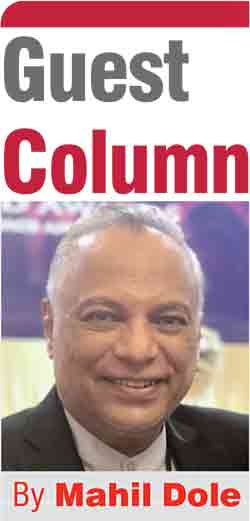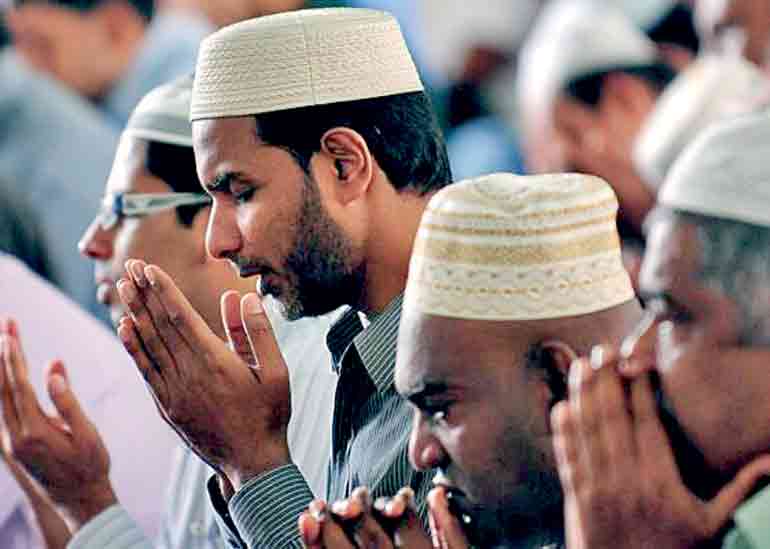In today’s rapidly transforming world, Muslims everywhere face the delicate task of knowing when, where, why, who, and how to draw the line — a line that defines both our moral boundaries and our openness to engage the world. It is not a line of exclusion or rigidity, but one of wisdom and balance — guided by Qur’anic insight, prophetic example, and human understanding.
Drawing the line means recognising our responsibilities before Allah while navigating the complexities of life in a globalised, pluralistic environment. It requires not emotional reaction, but reflective wisdom — to protect our faith without isolating ourselves, and to engage with dignity without compromising identity.
Faith and modern realities

The modern Muslim is constantly negotiating spaces — between tradition and progress, modesty and professionalism, faith and visibility. These are not contradictions unless we make them so. A profound example recently came from the sporting world — a young Muslim woman who became the fastest runner in South Asia, winning three sprint events and bringing pride to her nation and community.
Yet, rather than celebrating her historic victory, much of the discussion turned to her running attire — the shorts she wore as part of her athletic uniform. For some, this became a debate about modesty and faithfulness to Islamic dress codes. But before judgment, we must pause and reflect:
It is Allah, the Almighty, who created her, nurtured her, and made it possible for her to come this far — to achieve this champion status.
To see her triumph through this lens is to recognise divine will and purpose. Her success, like all human excellence, is not apart from Islam but part of Allah’s creative power and design. It should inspire us to rethink how we draw the line — not through condemnation, but through compassion, guidance, and context.
Faith, jurisprudence, and necessity
Islamic jurisprudence (fiqh) teaches adaptability through the principle that “necessity permits the prohibited” (al-darurat tubih al-mahzurat). This maxim does not abolish divine law but recognises contextual flexibility when higher objectives (maqasid al-shariah) — like preservation of life, dignity, or public benefit — are at stake.
In a global Muslim community facing competing pressures — from modern lifestyles to global media exposure — we must apply shariah not only as law but as living guidance. The Qur’an, Sunnah, Hadith, and tradition provide moral direction, but they also demand understanding of time, place, and circumstance. This is where the art of drawing the line truly lies: to distinguish between principles that are divine and customs that are cultural.
The institutional crisis: Many organisations, little impact
However, while individuals struggle to balance faith and modern life, the collective Muslim community faces an even more pressing challenge — organisational stagnation. Across nations, including Sri Lanka, we have witnessed the emergence of countless Muslim organisations, each claiming to be a “strategic” or “think tank” body representing the community’s interests. Yet, despite decades of effort, fragmentation persists, and real transformation remains elusive.
Why?
Why do we continue to create new institutions every few years, each declaring that the previous ones were ineffective?
Why do so few of these organisations produce lasting change or measurable results?
And why do our initiatives fade as quickly as they emerge?
The answer lies not merely in Islamophobia or external hostility, but within ourselves — in ego-driven leadership, lack of strategic vision, and an absence of institutional discipline.
The culture of reaction and rhetoric
Many Muslim organisations are reactive rather than proactive. They are born in response to crises — hate speech, discrimination, or political tension — instead of being built upon research, planning, and long-term strategy. True think tanks, by contrast, are knowledge institutions that rely on analysis, data, and continuity — not just emotion or activism.
Furthermore, leadership often becomes personality-based rather than purpose-based. When individuals place themselves above the mission, organisations lose their continuity. Successive generations of young Muslims are seldom empowered, and institutions stagnate when founders step aside.
This creates what may be called a “conference culture” — where we discuss, declare, and debate, but rarely follow through.
Committees replace execution, and rhetoric replaces results.
The role of Islamophobia
Islamophobia does play a role — it distorts public perception, marginalises Muslim voices, and discourages active engagement. But it cannot be the sole explanation for our failures. Islamophobia often exposes our lack of unity and preparedness. If we were organised, trained, and strategically coherent, external prejudice would have less power to divide or silence us.
Our focus, therefore, must shift from blaming Islamophobia to building resilience. The Prophet (peace be upon him) himself faced hostility far greater than ours — yet he responded with wisdom, structure, and faith. His was not a reactive community, but a strategic movement of ideas and values.
In a global Muslim community facing competing pressures — from modern lifestyles to global media exposure — we must apply shariah not only as law but as living guidance. The Qur’an, Sunnah, Hadith, and tradition provide moral direction, but they also demand understanding of time, place, and circumstance. This is where the art of drawing the line truly lies: to distinguish between principles that are divine and customs that are cultural
Restoring purpose: From talk to transformation
To rebuild strength and credibility, the Muslim community must move from talk to tangible transformation:
1.
Consolidate, not multiply:
Unite organisations under shared goals — policy research, education, or social harmony — instead of creating new bodies for prestige or control.
2.
Build knowledge-based leadership:
Encourage professionals, academics, and youth trained in governance, communication, and Islamic thought to take the lead.
3.
Measure success:
Evaluate outcomes annually — in community programs, policy influence, or interfaith engagement — to ensure accountability.
4.
Bridge generations:
Pass on experience and empower the next generation to lead with innovation, not imitation.
5.
Combine strategy with spirituality:
The Prophet (peace be upon him) reminded us that sincerity (ikhlas) and excellence (ihsan) are the foundations of success. Without barakah (divine blessing), even the best strategies fail.
The spiritual dimension
Throughout Islamic history, success was not measured by the number of organisations but by the sincerity of purpose. Whether it was Medina’s early community, Andalusian scholarship, or Ottoman administration — all thrived when faith and intellect worked together.
The Qur’an teaches us:
“Indeed, Allah does not change the condition of a people until they change what is in themselves.” (13:11)
Before we reform institutions, we must reform hearts — by replacing ego with humility, speech with service, and reaction with reflection.
Conclusion: The line we must draw
To draw the line today is not to isolate ourselves, but to define ourselves — clearly, wisely, and faithfully. It means refusing to be trapped between blind modernism and rigid traditionalism. It means acknowledging that excellence in sport, science, or leadership is not un-Islamic — it is part of Allah’s creation and a reflection of human potential.
Our challenge as a global Muslim community is to transform fragmentation into unity, noise into direction, and emotion into vision.
When we learn to draw the line between ego and service, rhetoric and responsibility, and tradition and truth, we will once again stand as a community that not only speaks of Islam — but lives its wisdom.
“And those who strive for Our cause – We will surely guide them to Our paths.” (29:69)
(The writer is a Senior Law Enforcement and Intelligence Specialist, former Head of Counter-Terrorism – State Intelligence Service, First Secretary (Defence), Embassy of Sri Lanka in Thailand, and present member of the Sri Lanka Waqfs Board.)

 The modern Muslim is constantly negotiating spaces — between tradition and progress, modesty and professionalism, faith and visibility. These are not contradictions unless we make them so. A profound example recently came from the sporting world — a young Muslim woman who became the fastest runner in South Asia, winning three sprint events and bringing pride to her nation and community.
The modern Muslim is constantly negotiating spaces — between tradition and progress, modesty and professionalism, faith and visibility. These are not contradictions unless we make them so. A profound example recently came from the sporting world — a young Muslim woman who became the fastest runner in South Asia, winning three sprint events and bringing pride to her nation and community.